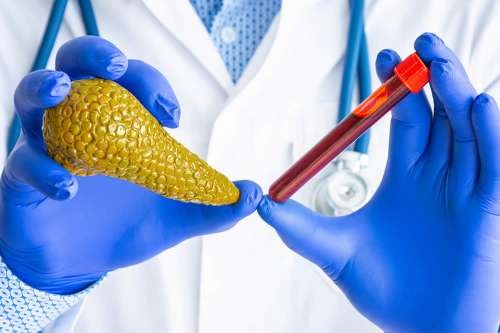
What is amylase and why is the test performed to measure the amount of amylase in the blood?
Amylase is one of the enzymes produced by the pancreas and salivary glands (but also by the small intestine, liver, ovaries and fallopian tubes) and involved in the digestion of carbohydrates
Normally, amylase is present in small doses in the blood and urine, but it is produced in larger quantities and, therefore, its concentration increases in the event of pancreatic cell damage or pancreatic duct obstruction.
Amylase is present in the body in two different forms, or isoenzymes:
P-amylase is excreted mainly by the pancreas, and S-amylase, excreted mainly by the salivary glands.
The amounts of P-amylase in the blood increase in the presence of pancreatic damage, those of S-amylase in the case of damage to the salivary glands.
The test is used to measure the amount of total amylase in the blood in order to diagnose or monitor pancreatic diseases, such as chronic and acute pancreatitis, and the treatment of pancreatic tumours.
Amylase, what does the test result mean?
High amylase concentrations in the blood indicate the possible presence of pancreatic or salivary gland diseases, such as mumps.
How is the test performed?
The test is performed by taking blood.
The test is performed on a serum sample.
Are there any preparation rules?
The patient must not drink in the two hours preceding the taking of the sample and must not consume alcohol in the twenty-four hours preceding the taking of the sample.
Any medication intake should be reported, as it may lead to altered amylase levels.
It should be remembered that the results of laboratory tests must be framed by the doctor, taking into account any medications taken, phytotherapeutic products and medical history.
Read Also:
Emergency Live Even More…Live: Download The New Free App Of Your Newspaper For IOS And Android
Gestational Diabetes, What It Is And How To Deal With It
Pancreatic Cancer, A New Pharmacological Approach To Reduce Its Progression
What Is Pancreatitis And What Are The Symptoms?
Kidney Stones: What They Are, How To Treat Them
Acute Pancreatitis: Causes, Symptoms, Diagnosis And Treatment



